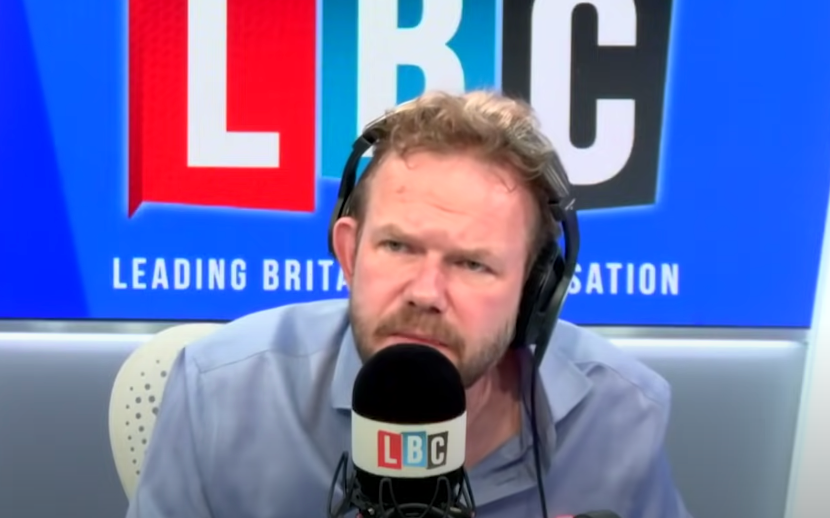Ofcom rules in favour of LBC’s James O’Brien over Institute of Economic Affairs ‘dark money’ comments
IEA hits back, saying Ofcom has allowed radio presenter to ‘issue falsehoods... without any attempt at reasonable fact-checking’

Your support helps us to tell the story
From reproductive rights to climate change to Big Tech, The Independent is on the ground when the story is developing. Whether it's investigating the financials of Elon Musk's pro-Trump PAC or producing our latest documentary, 'The A Word', which shines a light on the American women fighting for reproductive rights, we know how important it is to parse out the facts from the messaging.
At such a critical moment in US history, we need reporters on the ground. Your donation allows us to keep sending journalists to speak to both sides of the story.
The Independent is trusted by Americans across the entire political spectrum. And unlike many other quality news outlets, we choose not to lock Americans out of our reporting and analysis with paywalls. We believe quality journalism should be available to everyone, paid for by those who can afford it.
Your support makes all the difference.LBC‘s James O’Brien has won a two-year media regulator battle after Ofcom ruled in his favour and against the Institute of Economic Affairs, after the radio presenter described the charity as a “lobby group” funded by “dark money”.
Ofcom cleared LBC of any offence during O’Brien’s shows in early 2019, saying it found that “material facts were not presented, disregarded or omitted in the programmes in a way that was unfair to the IEA”.
The registered charity and right-wing think tank complained to Ofcom, accusing the radio station and its host of making a series of unfair comments.
It took objection to the statements by presenter which referred to the IEA as a “lobby group” whose representatives were “not actors of good faith” or “proper experts”, and it was called an organisation of “questionable provenance, with dubious ideas and validity”, according to a document detailing Ofcom’s decision.
During the show with guest Peter Geoghegan, O’Brien called the institute a “hard-right lobby group for vested interests of big business, fossil fuels, tobacco, junk food” and urged media organisations not to quote it “as an educational charity, because they don’t reveal who funds them”.
Ofcom said following its investigation: “We considered that the presenter’s claims about the IEA and its activities was clearly presented in the programme as being his own personal impressions, based on the outcome of investigations which had been carried out by openDemocracy and conclusions drawn by the Charity Commission in its Official Warning, which had explicitly stated that the IEA had been ‘engaging in campaigning and lobbying activity’.”
The 2019 broadcast in question came after an investigation by the political news website openDemocracy which alleged links between senior Conservatives and the IEA.
In February 2019 the Charity Commission officially warned the IEA for allegedly using its resources to campaign for a hard Brexit. The warning was later formally withdrawn “in light of steps the charity has taken since the breach”.
The IEA said in its complaint to Ofcom that they were victims of a “smear campaign” that was “politically motivated” adding that allegations that they were engaged in lobbying were false.
But after an extensive investigation, LBC and O’Brien have been cleared over the complaint as Ofcom found that the comments made during the show were not distorted or unfair. It found that an invite O’Brien issued to have someone from IEA come on the show served as an effective right of reply – even though it was caveated with the phrase “as long as they tell me who funds them”. The regulator said a reasonable listener would not take the latter sentence seriously.
The IEA has since issued a statement calling Ofcom’s decision “deeply disappointing”, and saying they will consider more legal steps.
“The regulator has allowed James O’Brien to issue falsehoods about the Institute of Economic Affairs – based on nothing more than conspiracy theories – without any attempt at reasonable fact-checking, or upholding the IEA’s right to reply,” it said.
“This bizarre ruling will be a boon to conspiracy theorists, and smacks of regulatory incompetence and political bias,” it added.
Join our commenting forum
Join thought-provoking conversations, follow other Independent readers and see their replies
Comments